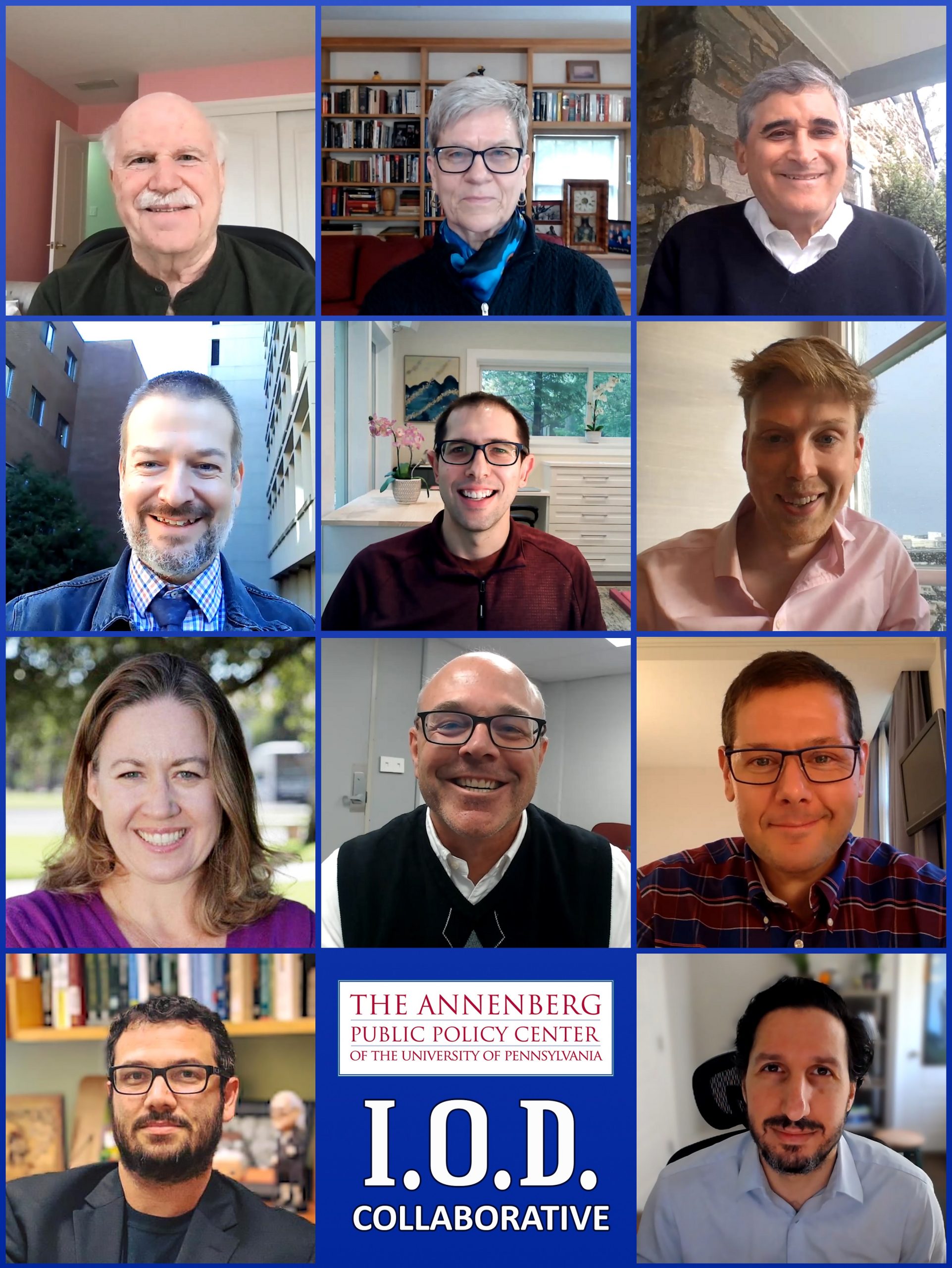
Democracy Amid Crises
In this colloquium, three of the co-authors of Democracy Amid Crises (fall 2022, Oxford University Press) – Lance Holbert, Matt Levendusky, and Josh Pasek – presented key findings from an 11-wave panel of over 9,000 U.S. citizens drawn from four 2020 battleground states. Among the questions they will address are: How did the perceptions of Biden and Trump supporters differ about which issues mattered most to them? What were the implications of the K-shaped recovery for voting? How did perceptions of which groups are the objects of discrimination matter? What role did one’s media reliance play in perceptions of the legitimacy of Biden’s victory?
R. Lance Holbert is a faculty member within Klein’s Department of Communication and Social Influence at Temple University. He studies persuasion-based processes of media influence within the context of politics. He has authored or co-authored over 100 publications. Professor Holbert is a Distinguished Research Fellow of the Annenberg Public Policy Center and an International Communication Association (ICA) Fellow. He is editor-in-chief of Journal of Communication, served as Chair of ICA’s and NCA’s Mass Communication Divisions, as well as NCA’s Political Communication Division, and was named the 2012 Teacher of the Year by the National Communication Association’s Mass Communication Division.
Matthew Levendusky is professor of political science, as well as the Stephen and Mary Baran Chair in the Institutions of Democracy sector of the Annenberg Public Policy Center, at the University of Pennsylvania. He also holds a secondary (courtesy) appointment in the Annenberg School for Communication and serves as the Penny and Robert A. Fox Director of the Fels Institute of Government (2018-2026). He was previously Distinguished Fellow in the Institutions of Democracy at the Annenberg Public Policy Center (2017-2019), as well as graduate group chairperson (2013-2018), associate professor (2013-2018), and assistant professor of Political Science at the University of Pennsylvania (2007-2013), and a postdoctoral research associate at the Center for the Study of American Politics at Yale University (2006-2007). Since 2014, he has served as a decision desk analyst for NBC News.
Josh Pasek is associate professor of communication & media and political science, faculty associate in the Center for Political Studies, and core faculty for the Michigan Institute for Data Science at the University of Michigan. His research explores how new media and psychological processes each shape political attitudes, public opinion, and political behaviors. Josh also examines issues in the measurement of public opinion including techniques for reducing measurement error and improving population inferences. Current research explores how both accurate and inaccurate political information might influence public opinion and voter decision-making, evaluates whether the use of online social networking sites such as Facebook and Twitter might be changing the political information environment, and assesses the conditions under which nonprobability samples, such as those obtained from big data methods or samples of Internet volunteers, can lead to conclusions similar to those of traditional probability samples. His work has been published in Public Opinion Quarterly, Political Communication, Communication Research, and the Journal of Communication among other outlets. He also maintains two R packages for producing survey weights (anesrake) and analyzing weighted survey data (weights).


